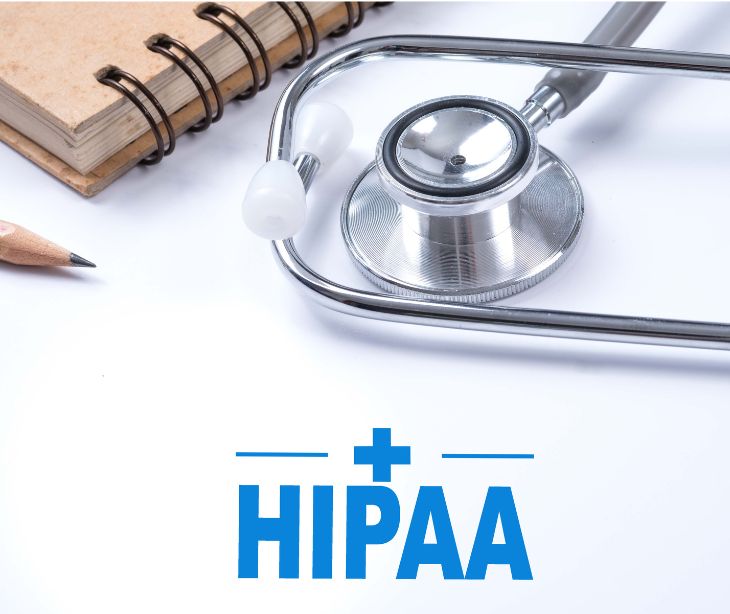
In this article we will navigate the complex nature of reproductive health information, providing a comprehensive exploration of the rules, patient rights, and compliance requirements that apply to this broad topic.
Table of contents:
- HIPAA and reproductive health information
- When can reproductive information be shared?
- Other legislation you should know about
- State laws and reproductive information
- Roe v Wade: The impact in case law on reproductive rights
- The role of AI
HIPAA and reproductive health information
HIPAA provides data privacy and security provisions to safeguard medical information. Under HIPAA, reproductive health information is considered PHI, or Protected Health Information. Any information about a person's reproductive health, including treatments, conditions like pregnancy or sexually transmitted infections, contraception methods, and fertility details, are protected.
The rules of HIPAA
The HIPAA Privacy Rule requires healthcare providers to strictly limit the use and disclosure of reproductive health information to the minimum necessary to achieve the intended purpose. This means when handling reproductive health details, providers must only access and share the least amount of information needed for a task, like treatment or billing. This ensures that a patient's sensitive reproductive health data is protected.
The HIPAA Security Rule requires healthcare providers to implement protective measures for electronic reproductive health information. This involves setting up robust digital safeguards like encryption, secure access controls, and regular security updates to keep this sensitive data safe from unauthorized access or breaches.
Providers must also conduct regular risk assessments to identify any vulnerabilities in their systems and take prompt action to address these risks. Additionally, they must train their staff to handle electronic health records securely.
The HIPAA Breach Notification Rule mandates that healthcare providers promptly report any breach of reproductive health information. If a breach occurs, they must notify affected patients, the Department of Health and Human Services, and, in cases of large breaches, the media.
This notification, which must happen without undue delay and no later than 60 days after discovering the breach, should include details about the breach, the type of information involved, the steps individuals should take in response, and what the provider is doing to investigate and prevent future breaches.
Patient rights under HIPAA
Patients have several rights under HIPAA when it comes to their protected health:
- Patients have the right to access their own reproductive health records.
- They can request copies of their health information.
- Patients have the right to ask for corrections to their records if they find errors.
- They can request restrictions on who can see and use their reproductive health information.
- Patients have the right to obtain a report on who has accessed their information.
- They can choose how they receive communications about their health, such as via email or postal mail.
- Patients have the right to give or deny permission before their reproductive health information is shared for purposes other than treatment, payment, or healthcare operations.
- They can file a complaint if they believe their rights have been violated.
Who needs to comply with HIPAA?
Under HIPAA, a specific set of entities must comply with its regulations:
- Healthcare providers, such as doctors, clinics, and hospitals, conduct certain healthcare transactions electronically.
- Health plans, including health insurance companies, HMOs, company health plans, and government programs like Medicare and Medicaid, must also comply.
- Healthcare clearinghouses, which process nonstandard health information into a standard format, fall under HIPAA's compliance requirements.
- Business associates, or companies that perform services for these covered entities involving the use or disclosure of PHI, must also adhere to HIPAA regulations.
Caregivers and HIPAA
If an individual has a legally appointed guardian or caretaker due to incapacity or disability, the caretaker may be granted access to the individual's reproductive health information, as they are considered the personal representative of the patient. This access is typically based on the extent of the guardian's legal authority to make healthcare decisions on behalf of the individual.
However, if the individual is capable of making their own healthcare decisions, they retain the right to control access to their reproductive health information. In these cases, healthcare providers would need explicit consent from the individual before sharing any reproductive health details with their caretaker.
HIPAA's goal here is to protect the individual's privacy while ensuring they receive the necessary care, respecting their autonomy as much as possible. This approach requires healthcare providers to carefully assess each situation to determine the appropriate level of access for caretakers, always keeping the patient's best interests and legal rights at the forefront.
See also: How HIPAA applies to reproductive health information
When can reproductive information be shared?
With the patient's consent, providers can disclose this information for legitimate healthcare purposes, such as treatment, referrals, and coordination of care. Providers may share reproductive health information without explicit patient consent in certain circumstances, such as public health emergencies, legal requirements, or law enforcement requests.
This includes reporting communicable diseases to public health authorities or complying with court orders. Additionally, in the context of research, healthcare providers may share de-identified or anonymized reproductive health information under specific conditions, such as with an Institutional Review Board waiver or for preparatory research purposes.
Other legislation you should know about
Genetic Information Nondiscrimination Act (GINA)
This law prevents discrimination by health insurers and employers based on genetic information. This includes information about an individual's genetic tests, the genetic tests of family members, and family medical history, which can relate to reproductive health issues such as inherited disorders or conditions.
Americans with Disabilities Act (ADA)
The ADA prohibits discrimination against individuals with disabilities. This can include conditions related to reproductive health, ensuring that individuals with reproductive health disabilities receive equal treatment and accommodations in employment and other areas covered by the Act.
Civil Rights Act of 1964
Specifically, Title VII of this Act, which prohibits employment discrimination based on sex, can apply to issues of pregnancy, childbirth, and related medical conditions, protecting individuals from discrimination in the workplace based on these aspects of reproductive health.
Patient Protection and Affordable Care Act (ACA)
The ACA includes provisions that enhance access to preventive health services, including reproductive health services like contraception and screenings. It expands coverage and protections for reproductive health care and prohibits discrimination in healthcare based on gender.
Title X of the Public Health Service Act
This program provides funding for family planning and reproductive health services to low-income or uninsured individuals. Title X influences how reproductive health information is managed and shared in clinics that receive this funding, focusing on confidentiality and access.
Family Educational Rights and Privacy Act (FERPA)
While FERPA primarily protects the privacy of student education records, it also applies to health records, including reproductive health information, at educational institutions, especially those with health clinics that serve students.
See also: The legislation that impacts reproductive health information
State laws and reproductive information
State laws significantly intersect with reproductive health information, often providing additional regulations or protections beyond federal laws like HIPAA. Each state can enact laws governing the use, disclosure, and protection of reproductive health information. These laws might address issues such as consent for reproductive health services, confidentiality of health records for minors seeking reproductive care, and specific requirements for reporting certain conditions.
Following the overturning of Roe v. Wade, states like Texas, Oklahoma, and Alabama enacted highly restrictive abortion laws. These laws not only limit the availability of abortion services but also impose new requirements on healthcare providers regarding reporting and information sharing. For instance, some states require providers to report detailed information about abortions performed, which could raise concerns about patient privacy.
In contrast, states like California, New York, and Illinois have passed laws to protect and expand access to abortion and other reproductive health services. These states have also taken measures to safeguard the privacy of reproductive health information, particularly in response to concerns that personal data could be used to track or penalize individuals seeking or providing abortion services.
Roe v Wade: The impact in case law on reproductive rights
The landmark case of Roe v. Wade, decided in 1973, profoundly impacted reproductive rights in the United States by establishing a constitutional right to abortion. This decision created a legal framework that protected a woman's choice to have an abortion, balancing this right against the state's interests in regulating abortions and protecting prenatal life.
However, subsequent cases, including Planned Parenthood v. Casey and the recent Dobbs v. Jackson Women's Health Organization, have further shaped the legal landscape. The Casey decision in 1992 upheld Roe's core holding. Still, it allowed states more leeway in imposing abortion restrictions, introducing the "undue burden" standard for assessing these laws.
Most significantly, the 2022 Dobbs decision overturned Roe v. Wade, removing the federal constitutional protection of abortion rights and granting individual states the power to set their own abortion laws. This shift has led to a patchwork of state laws, with some states enacting restrictive abortion laws and others adopting protective measures, profoundly impacting access to and the legality of abortion across the country.
The role of AI
AI plays a significant role in enhancing reproductive health information and treatments through its advanced data analysis capabilities. In reproductive healthcare, AI systems are used to analyze a wide range of factors, such as hormonal levels, menstrual cycle patterns, genetic data, and lifestyle factors, to optimize fertility treatments. This includes predicting fertile windows with greater accuracy, thus improving the timing and success rates of interventions like in vitro fertilization (IVF) and artificial insemination.
Additionally, AI aids in diagnosing reproductive health conditions, such as polycystic ovary syndrome (PCOS) and endometriosis, by efficiently processing and interpreting complex medical images and patient histories. These applications of AI not only enhance the precision and effectiveness of reproductive healthcare but also offer personalized treatment approaches, making it a valuable tool in the field.
See also: HIPAA Compliant Email: The Definitive Guide
See also: Is AI reproductive health treatment HIPAA compliant?
Subscribe to Paubox Weekly
Every Friday we bring you the most important news from Paubox. Our aim is to make you smarter, faster.




